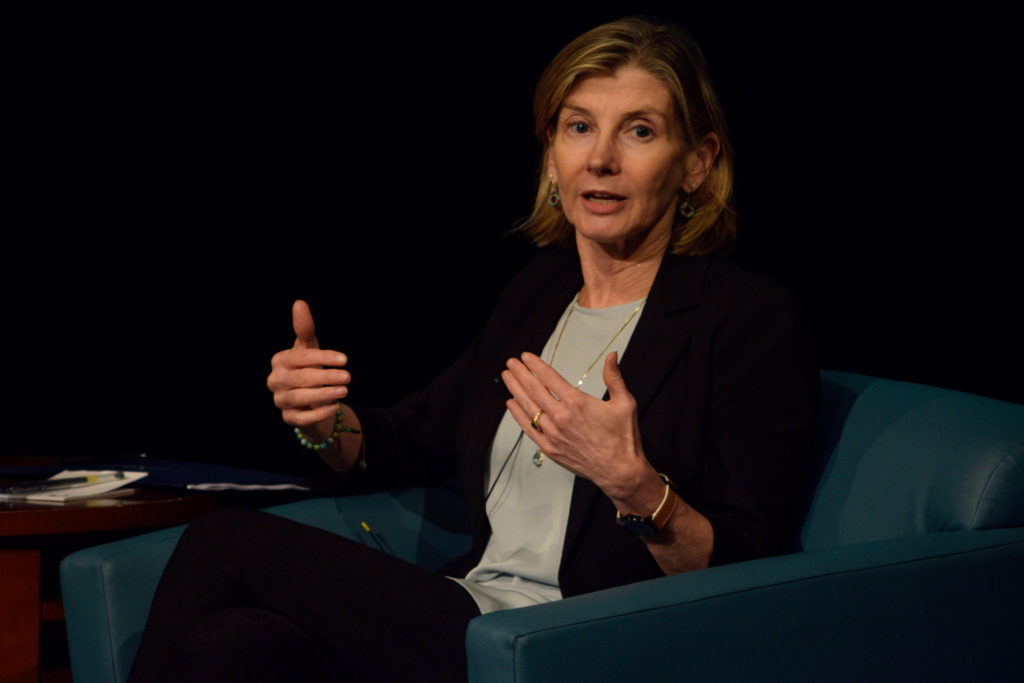The president of the U.S. Institute of Peace discussed strategies for international peacebuilding at the Marvin Center Tuesday.
Nancy Lindborg, who heads the independent federal institute, spoke about her career and current challenges to brokering peace in conflict-stricken countries around the world in a conversation with Reuben Brigety, the dean of the Elliott School of International Affairs. The event was part of the Elliott School’s First-Week Focus speaker series and presented by the GW International Affairs Society.
Lindborg said that as “big major power” wars between states become less common, intrastate conflict and nongovernmental violent extremism now comprise the bulk of conflict worldwide. She said factors like extreme poverty, civil war and the presence of violent extremists exacerbate existing conflict in countries like Iraq, Afghanistan and South Sudan.
“For much of the world, we’re still experiencing this long peace, but in these countries, for the past two decades, they’ve been these cauldrons of conflict,” she said.
Lindborg added that while “resilient” states can withstand phenomena like natural disasters or domestic turmoil without devolving into conflict, “fragile” states have less capacity to “absorb” the shock associated with such events.
“Conflict is inevitable,” she said. “There will always be conflict. The question is, do you have the systems to manage it?”
Lindborg said resolving international conflicts requires those engaged in peacebuilding efforts to address the “root causes” behind conflict in fragile states like Nigeria and Burkina Faso, including distrust between governments and citizens, social fragmentation and the state’s inability to provide resources for its citizens.
“We need to think differently about how we interrupt what are often spin-cycles of conflict in fragile states,” she said.
Lindborg said authoritarian states are also fragile and conflict-prone because repressive governments marginalize and exclude sections of the population.
She added that an “up-swelling” in the number and power of authoritarian governments occurred after a recent worldwide positive trend toward democratization after citizens became disappointed that their democratic governments were unable to provide them with the services they had hoped for.
“How do you create a system that delivers for its citizens in a more equitable way with greater legitimacy?” Lindborg said.
She said U.S. officials need to shift their focus from responding to international crises to enacting preventative measures, adding that military, diplomatic and governmental stakeholders in peacebuilding efforts must establish shared goals. She said U.S. officials must develop partnerships with foreign nations to maximize their impact in fostering peace worldwide.
“We can’t just keep responding with humanitarian assistance or with military kinetic action,” Lindborg said. “We can’t bomb our way out of this problem set.”
She added that while humanitarian assistance to countries embroiled in conflict is “essential,” humanitarian efforts cannot guarantee that countries will not re-enter conflict.
“We need to be looking at issues of justice and reconciliation and ways in which communities can heal so they don’t keep coming back into conflict with one another,” Lindborg said.




